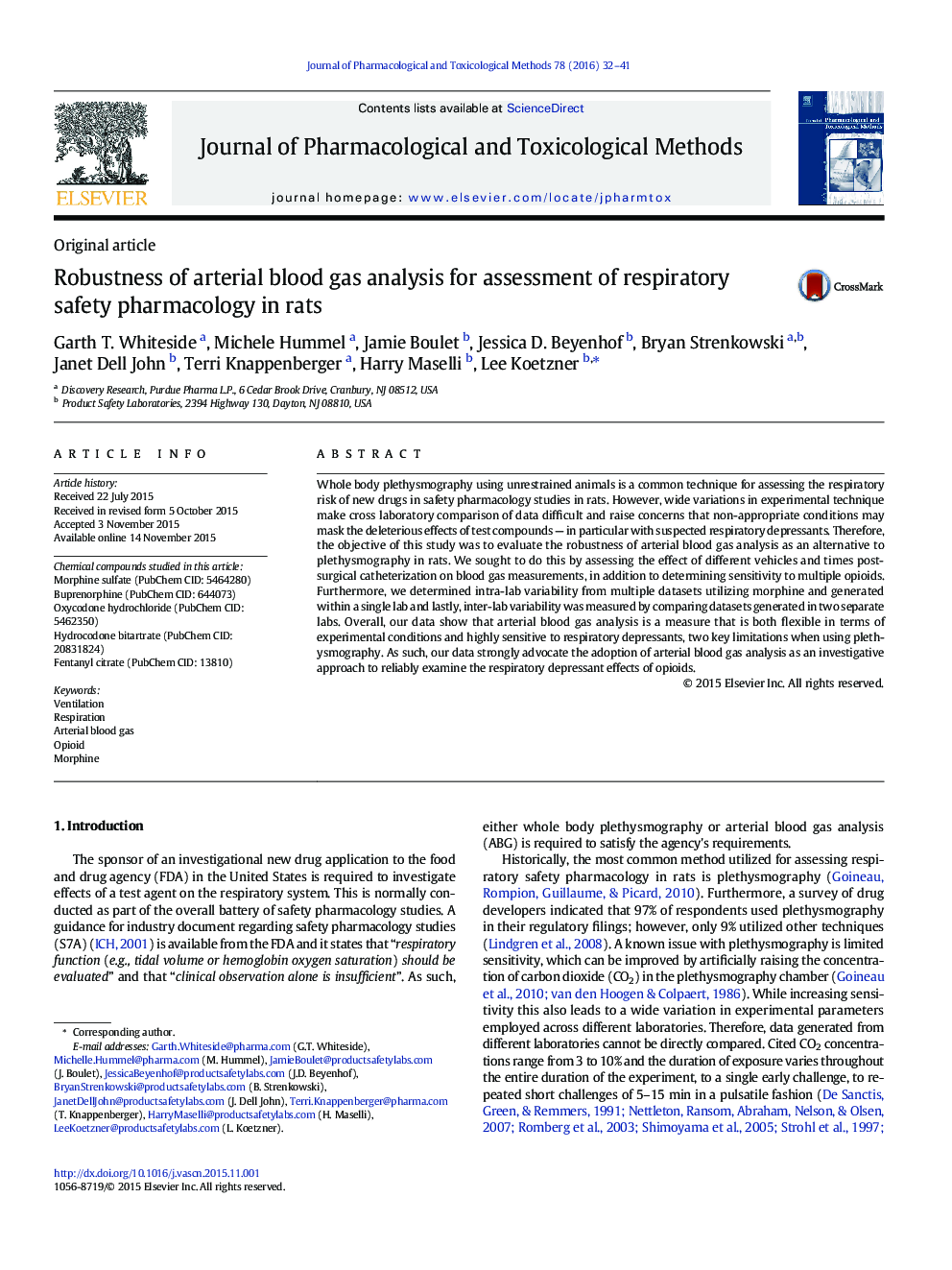| Article ID | Journal | Published Year | Pages | File Type |
|---|---|---|---|---|
| 2548979 | Journal of Pharmacological and Toxicological Methods | 2016 | 10 Pages |
Whole body plethysmography using unrestrained animals is a common technique for assessing the respiratory risk of new drugs in safety pharmacology studies in rats. However, wide variations in experimental technique make cross laboratory comparison of data difficult and raise concerns that non-appropriate conditions may mask the deleterious effects of test compounds — in particular with suspected respiratory depressants. Therefore, the objective of this study was to evaluate the robustness of arterial blood gas analysis as an alternative to plethysmography in rats. We sought to do this by assessing the effect of different vehicles and times post-surgical catheterization on blood gas measurements, in addition to determining sensitivity to multiple opioids. Furthermore, we determined intra-lab variability from multiple datasets utilizing morphine and generated within a single lab and lastly, inter-lab variability was measured by comparing datasets generated in two separate labs. Overall, our data show that arterial blood gas analysis is a measure that is both flexible in terms of experimental conditions and highly sensitive to respiratory depressants, two key limitations when using plethysmography. As such, our data strongly advocate the adoption of arterial blood gas analysis as an investigative approach to reliably examine the respiratory depressant effects of opioids.
